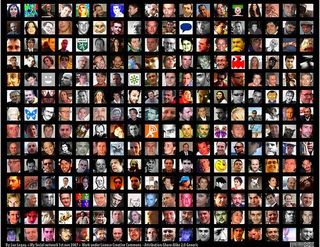Last week, I read an article written by Dan and Chip Heath in Fast Company that highlights the importance of emotion in marketing. The Heath brothers are the bestselling authors of "Made to Stick."
These guys noticed that there is often a disconnect between the emotion that a company tries to relate in a marketing campaign, and the reality that truly exists.
“Marketers caught on early that emotion sells product. 'Would your husband marry you again?' screams a Palmolive ad from 1921. (Not unless you scrub with Palmolive soap, honey.) Today, Heineken has promised warmer international relations via handoffs of Premium Light from mountain men to Indians to ballerinas. And, of course, Axe has sold young men on the fantasy of hooking up with deodorant-loving nymphomaniacs.
Emotional appeals are ubiquitous. They're also interchangeable. It would be just as easy to pitch Heineken as an aphrodisiac and Axe as a global harmonizer ('Peace starts in the pits'). And that's the problem: It's all stick-on emotion. Sometimes that works brilliantly (see: Corona). Other times, it's as weird and clumsy as an adhesive mustache -- remember Carl's Jr. and Paris Hilton's sexed-up hamburger ad? Fortunately, there's a better and more sustainable way to create emotion: Mean it.”
The article goes on to demonstrate how the impact of a marketing emotion can be greatly increased if there are concrete realities supporting that emotion, proving that it is a genuine representation of reality. Emotion combined with integrity REALLY sells!
If you’re a hiring manager, this is a principle you cannot afford to miss. People are drawn to you as a leader because of their perception of who you are. You may have a prominent company brand, many desirable externals (ex. office location, physical appearance of the office, advanced business tools, etc.), and you may even present yourself in a way that people are naturally drawn to you. That’s all emotion.
But, if the reality of who you are matches what you project, the fireworks start to fly. People want to work on teams with these types of leaders. Your “personal employment brand” has the ability to attract (or repel) people with a significant amount of force.
Ask yourself this question: What do people in your professional network really think of you?
Then ask yourself: Is this perception based on surface emotion and externals, or on the reality of what those in your professional community have experienced firsthand or have actually seen you do?
If you do not have a strong and believable personal brand, it is very difficult to be a successful hiring manager. But, how do you repair (or build for the first time) your personal brand? The quickest and most believable way, is through doing good deeds that support your emotional appeal. The Heath brothers put it this way:
“Why not simply replace the fake emotion with a real one? What if Downy started doing things to help struggling mothers -- and then used their ads to talk about the work? What if Bounce retaliated by throwing its weight behind job seekers looking to bounce back from a layoff? What if all this good work raised the competitive hackles of the not-to-be-underestimated Snuggle Bear? Perhaps it could sponsor a winter-coat drive.
What we're proposing here is an arms race of goodness -- a generation of companies that compete on real emotion rather than stick-on sentiments. Maybe that sounds Pollyanna-ish. If so, let us introduce you to some companies succeeding by meaning it.
Toms Shoes has a simple business model: Buy a pair of shoes, and it'll send a second pair to a child who needs it. This year, it'll send about 300,000 pairs of shoes to the developing world. And because it's the company's genuine passion to do so, Toms can take advantage of the word of mouth built into its product and spend dramatically less on marketing than other shoe companies. When you mean it, convincing customers doesn't take as much shouting.”
Start working on your personal employment brand and you may find that recruiting is not so difficult.
Editor's Note: This article was written by Ben Hess. Ben is the Founding Partner and Managing Director of Tidemark, Inc. and a regular contributor to WorkPuzzle. Comments or questions are welcome. If you're an email subscriber, reply to this WorkPuzzle email. If you read the blog directly from the web, you can click the "comments" link below.












